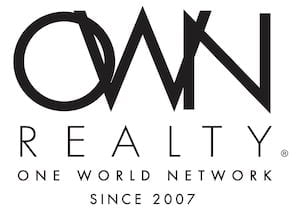1031 Exchange in Massachusetts
- Home
- 1031 Exchange in Massachusetts
Considering A Tax Deferred 1031 Exchange in Massachusetts? We are here to help!
The 1031 Exchange in Massachusetts, often referred to as a tax-deferred exchange, unfolds as a strategic maneuver for real estate investors aiming to navigate the intricate landscape of property transactions while mitigating tax liabilities.
Unlike traditional sales where the transfer of property is treated as a direct transaction, the 1031 exchange classifies the entire process as an exchange. This distinction holds paramount importance as it allows taxpayers to qualify for deferred gain treatment, shielding them from immediate taxation on the transaction.
The strategic advantages of a 1031 exchange in Massachusetts extend beyond tax deferral, encompassing key considerations for both seasoned real estate owners and investors entering the market.
As the state’s regulatory environment intertwines with federal tax laws, the judicious application of a 1031 exchange becomes a pivotal tool in preserving and enhancing investment capital.
The geographical and economic diversity of Massachusetts further amplifies the importance of a well-executed 1031 exchange. From the vibrant Boston metropolitan area to the charming coastal towns and serene rural landscapes, the state’s real estate market demands a nuanced approach.
Engaging in a 1031 exchange not only aligns with federal tax benefits but also provides investors in Massachusetts with the agility to navigate the specific dynamics of their chosen markets.
Considerations for investors in Massachusetts extend beyond the immediate tax implications. The potential rise in the capital gains tax rate from the current 15% to 20% underscores the urgency for strategic financial planning.
A 1031 exchange, by deferring these taxes, allows investors to preserve a substantial portion of their capital for reinvestment, irrespective of any future tax rate adjustments.

Understanding the dynamics of a 1031 exchange requires delving into the pertinent tax codes, primarily outlined in Section 1031 of the Internal Revenue Code. The Internal Revenue Service (IRS) provides further elucidation through the Like-Kind Exchange Regulations, a comprehensive guide issued by the US Department of the Treasury.
These regulations not only serve as a rulebook but also encapsulate the IRS’s interpretation of Section 1031, guiding investors through the nuances of executing a qualifying transaction.
Massachusetts, with its diverse real estate landscape ranging from bustling urban centers to picturesque suburbs, presents a myriad of opportunities and challenges for investors. The state’s tax rates, both at the federal and state levels, play a pivotal role in shaping the financial outcomes of property transactions.
Leveraging a 1031 exchange not only shields investors from immediate capital gains tax but also positions them strategically amid the evolving tax landscape.
Furthermore, the longevity of property ownership in Massachusetts directly influences the impact of depreciation on the investment. The IRS’s depreciation of capital real estate investments at a rate of 3% per year underscores the importance of managing this aspect effectively.
Engaging in a 1031 exchange empowers investors to navigate the intricate web of depreciation, ensuring that they retain maximum value from their real estate holdings.
Furthermore, the regulatory landscape in Massachusetts, including state-specific taxes and compliance requirements, adds a layer of complexity to real estate transactions.
Leveraging the guidance provided by the Internal Revenue Code Section 1031 and the Like-Kind Exchange Regulations remains crucial, not only for adherence to federal standards but also for a seamless integration with Massachusetts-specific regulations.
Why Consider a 1031 Exchange in Massachusetts?
The strategic significance of a 1031 exchange in Massachusetts becomes evident when considering the financial landscape for real estate owners and investors.
This IRS-acknowledged strategy acts as a shield against capital gains taxes, a crucial consideration when navigating the intricate process of acquiring a replacement property following the sale of an existing investment. Failing to utilize this strategy may expose investors to capital gains taxes, which currently stand at 15% but could escalate to 20% in the future.
Consider a scenario where an investor has held a property for 15 years, during which the IRS has depreciated it by 45%. Without the benefit of a 1031 exchange, the investor could be subject to paying taxes on that 45% depreciation.
As federal and state taxes combine to a marginal rate of, for instance, 35%, this would equate to approximately 15% of the property’s cost, constituting one-third of the total depreciation. If the property is fully depreciated, the entire 35% marginal tax rate applies, significantly impacting the investor’s purchasing power.
In contrast, executing a 1031 exchange in Massachusetts offers a strategic alternative. By deferring the tax liabilities associated with depreciation, investors can reinvest the full value of their property sale into a like-kind replacement, preserving their purchasing power and ensuring a seamless transition between investments.
The Bay State’s economic resilience and diverse sectors, such as technology, healthcare, and education, contribute to its real estate market’s stability. Investors seeking to capitalize on these sectors need a comprehensive strategy that goes beyond traditional buying and selling.
A 1031 exchange positions them to reinvest in properties that align with evolving market trends, providing the flexibility needed to adapt to changing economic landscapes.
Moreover, the significance of timing cannot be overstated. The specific time frames stipulated by the IRS for identifying and closing on replacement properties necessitate a meticulous approach to property selection.
In the competitive and dynamic real estate markets of Massachusetts, having a well-defined strategy, including contingency plans, can make all the difference in executing a successful 1031 exchange.

The Significance of a 1031 Exchange:
Additionally, the 1031 exchange strategy allows investors to navigate the terrain of depreciation of capital real estate investments. The IRS applies a depreciation rate of 3% per year as long as the investment is held, aiming to tax the depreciated portion as income tax when the property is sold.
By opting for a 1031 exchange, investors in Massachusetts can strategically manage their tax liabilities, preserving their purchasing power and fortifying their investment portfolios for sustained growth.
In essence, the 1031 Exchange in Massachusetts emerges as not just a tax-deferral strategy but a financial compass, guiding investors through the complexities of the real estate market while aligning with the state’s tax regulations and fostering sustainable investment practices.
The 1031 exchange in Massachusetts emerges as a sophisticated financial strategy, intertwining federal tax benefits with the intricacies of the state’s real estate market.
By strategically navigating capital gains taxes and depreciation, investors can fortify their portfolios, capitalize on diverse real estate opportunities, and ensure the longevity of their financial success in the dynamic landscape of the Bay State.
In essence, a 1031 exchange in Massachusetts serves as a versatile financial instrument that not only defers capital gains taxes but also aligns with the intricate nuances of the state’s real estate environment.
Investors who leverage this tool strategically can not only safeguard their capital from immediate tax obligations but also position themselves for sustained success in the ever-evolving Massachusetts real estate landscape.
Discover Your Path to Wealth Preservation
Power of 1031 Exchanges
Are you ready to embark on a financial journey that could reshape your real estate investments? Look no further! At Sapphire Investment Solutions, we specialize in turning the complex world of 1031 exchanges into a streamlined, wealth-building opportunity.


 Call us today:
Call us today: